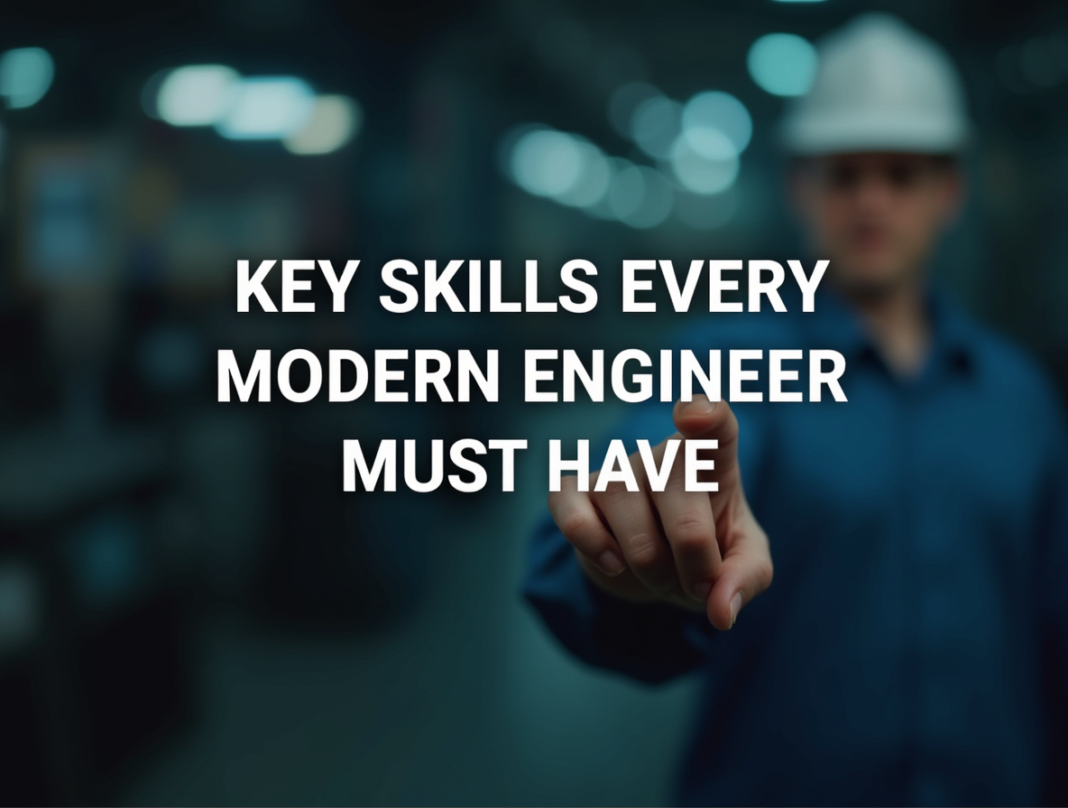Why Engineering Skills Are Evolving
Engineering today is changing fast. Evolving engineering skills are essential as the profession adapts to a more digital, connected, and global world. The tools are more advanced, the challenges more complex, and the expectations broader. It’s not just about knowing how to calculate loads or build models—it’s about combining technical depth with communication, adaptability, and strategic thinking.
One of the clearest expectations is still technical proficiency. Engineers need to know their software, whether that’s AutoCAD, Revit, MATLAB, or more specialized programs like ANSYS or Primavera P6. But technical knowledge goes beyond software. Programming skills—especially in Python or even R and SQL—are becoming increasingly useful, particularly as automation and AI begin to shift how we design and build systems.
Beyond the Blueprint: Problem-Solving and Teamwork
But knowing the tools is only half the battle. Problem-solving and critical thinking remain at the core of what makes engineers valuable. It’s not just about identifying solutions, but breaking down challenges in a way that accounts for sustainability, efficiency, and often, resource limitations. Engineering rarely follows a script—real projects come with real constraints, and that’s where good thinking matters.
At the same time, technical skills won’t get you very far without communication. Today’s engineers work in cross-functional teams—software developers with mechanical engineers, civil engineers with environmental scientists, and everyone trying to align with stakeholders who may not speak the technical language. Being able to write clearly, present ideas effectively, and collaborate respectfully is now just as important as drawing a good schematic.
Adapting, Managing, and Leading Projects
There’s also the growing expectation for engineers to manage more than just their deliverables. Project management has become part of the role, whether formally or informally. Understanding how projects unfold—how to stay on top of timelines, budgets, team dynamics, and scope changes—makes an engineer more valuable. Tools like MS Project, Jira, or even basic Excel tracking are now part of the daily toolkit.
All of this is happening in an environment that’s changing fast. That’s why adaptability matters more than ever. Engineers need to commit to lifelong learning—whether it’s picking up a new software tool, learning about AI integration, or staying informed about green building standards. Platforms like Coursera or edX can be great for picking up new skills on the fly.
Why Broader Awareness Matters

Data literacy is another area where expectations have grown. Projects now generate a huge amount of data, and engineers are expected to interpret it—whether that’s cost estimates, energy simulations, or user performance metrics. Knowing how to use SQL or create a dashboard in Power BI can go a long way. Engineers who understand data aren’t just reacting—they’re planning better.
Of course, none of this matters if we forget the bigger picture. Engineers play a role in shaping the physical world, so there’s a responsibility to consider ethics and the environment. That means thinking about material impact, waste reduction, and design for long-term resilience. Standards like ISO 14001 or frameworks like LEED help, but it really comes down to everyday decisions and the values behind them.
Creativity still has its place, too. In fact, with automation taking on more routine tasks, creative engineering is more in demand than ever. Whether it’s innovating with renewable energy solutions, exploring new construction methods, or simply improving user experience, engineers who think beyond the obvious often deliver the biggest value.
And as careers grow, so does the need for leadership. Engineers often find themselves leading teams, managing client relationships, or navigating complex stakeholder environments. Leadership isn’t about titles—it’s about being accountable, making decisions with incomplete data, and helping others succeed.
Finally, there’s global awareness. Engineering teams are increasingly international. Being able to navigate different regulatory environments, understand cultural nuances, and communicate across time zones makes collaboration smoother—and the results more successful.
There’s no single formula for being a great engineer in today’s world. But combining technical skills with adaptability, clear communication, and a broader perspective can set someone apart. And at the end of the day, experience still matters—being on site, solving real problems, and working with real teams. That’s where all these skills come together.
References
- American Society of Civil Engineers
- Institution of Civil Engineers
- Project Management Institute
- edX Online Learning
- IBM Data Analytics
- International Organization for Standardization (ISO)
- Engineers Australia


[…] encouraging is that engineers and designers are responding—with smarter, stronger, and more sustainable strategies. Structural reinforcement […]